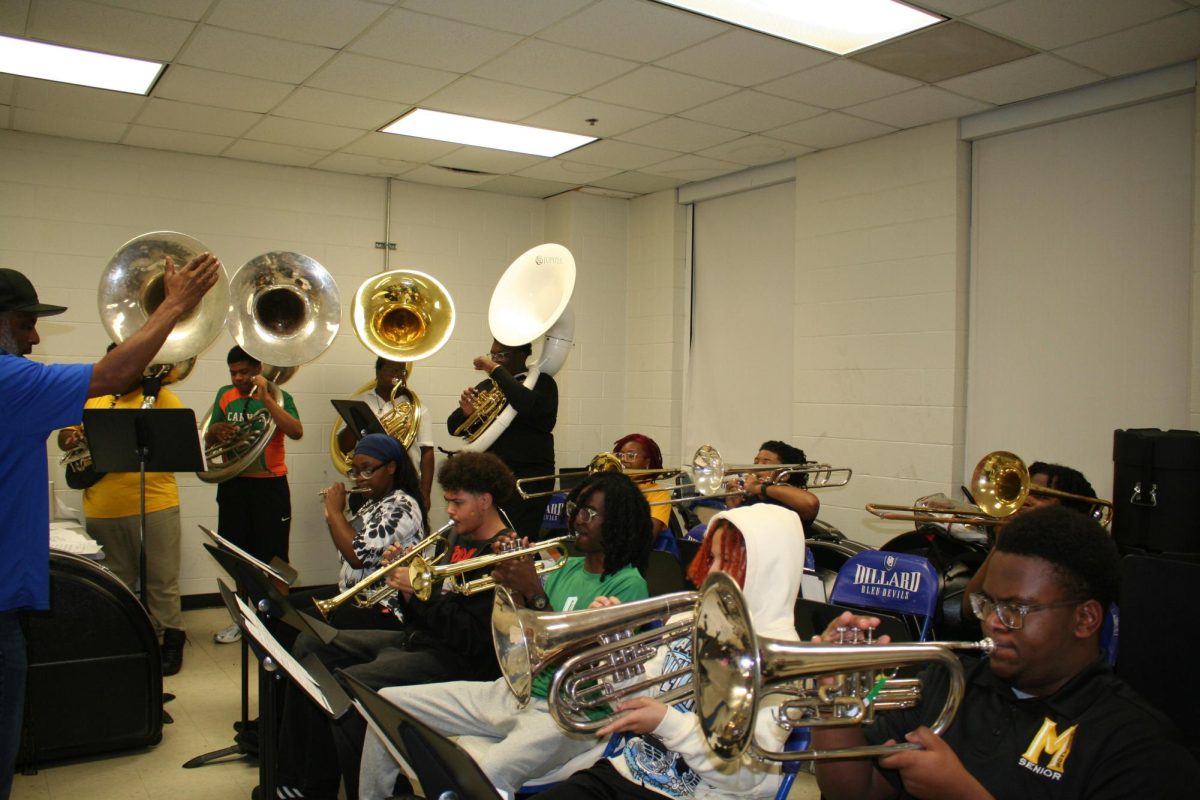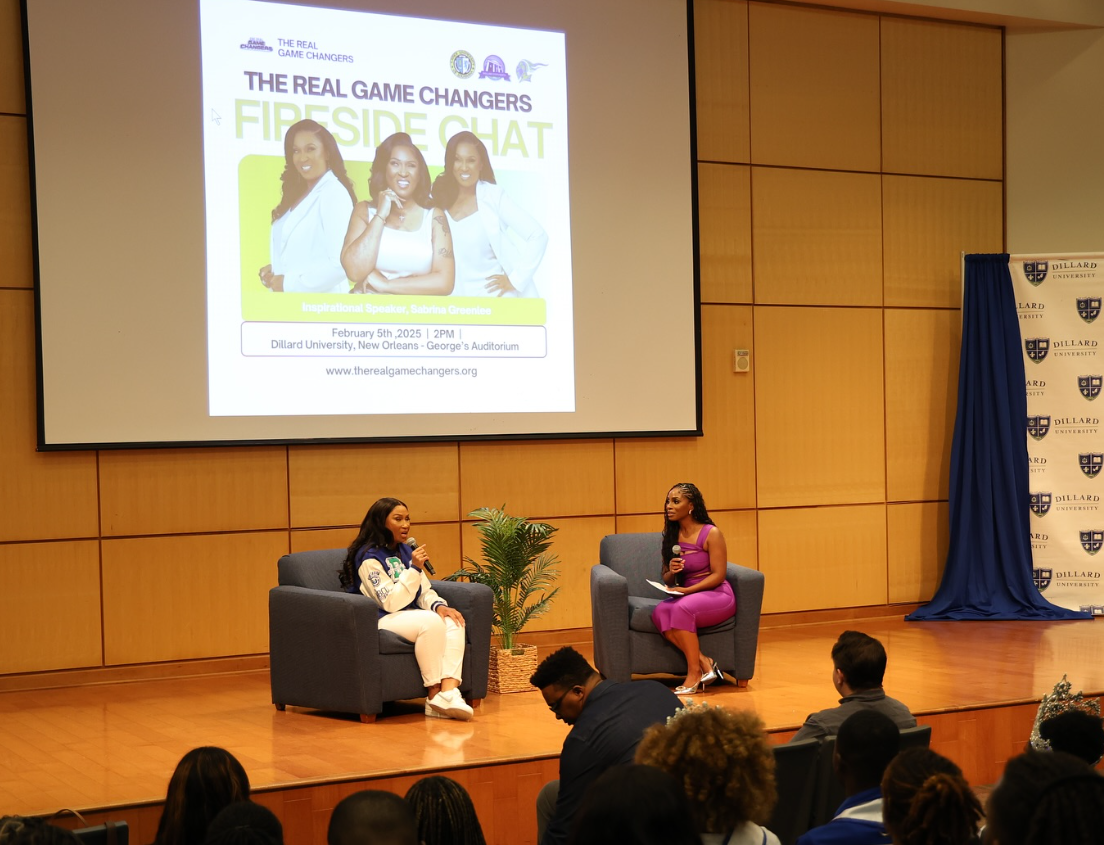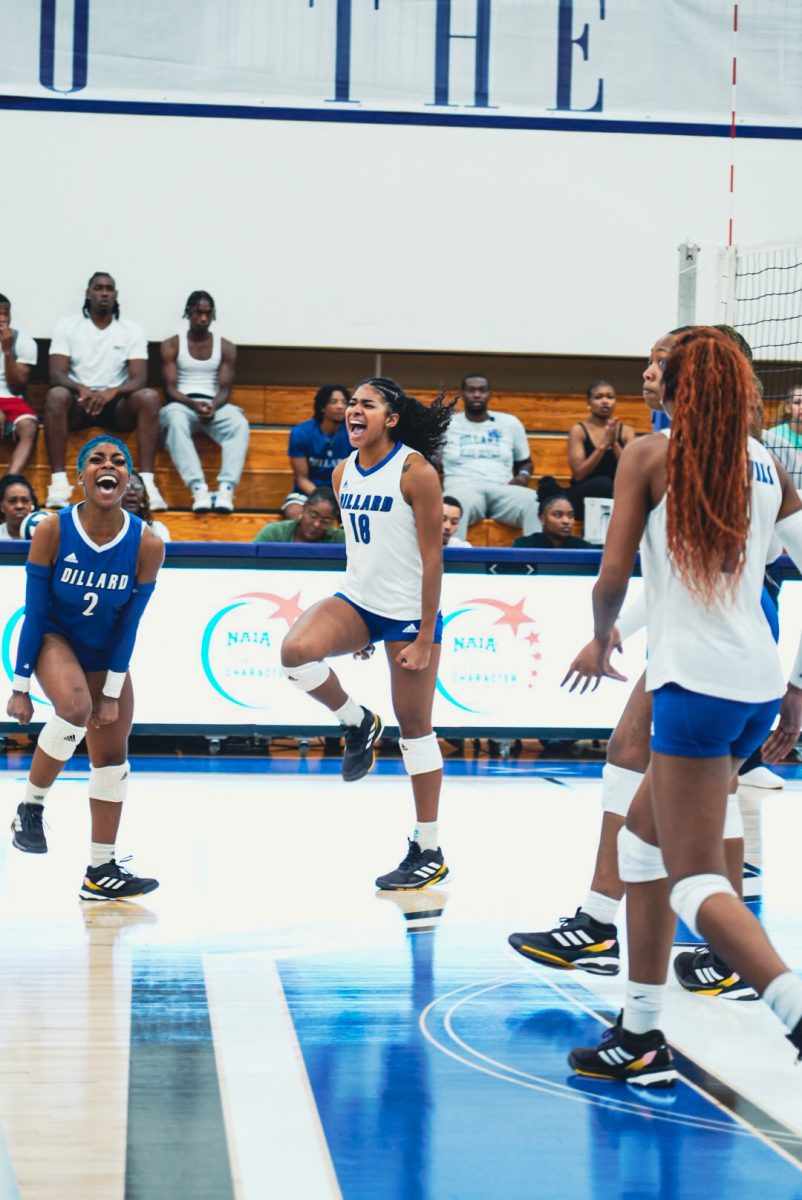
From left are President Walter Kimbrough, Carretta Cooke, Clayton Shelvin and Dr. Roland Bullard.
Two grants totaling nearly $1.7 million have been awarded to Dillard to improve student graduation rates and the kinds of meaningful work and post-graduate study they get into.
Dillard has received a $1 million, five-year Career Pathways Initiatives grant from UNCF to improve job-placement outcomes for graduates. It is one of 24 HBCUs and predominantly black institutions to receive such a grant, funded by the Lilly Foundation. While the grant is based in the Office of Academic Affairs and led by Dr. Cleo Joffrion Allen, associate professor of Mass Communication, and Dr. Steve Buddington, assistant dean of the College of Arts and Sciences, the Center for Career and Professional Development in Student Success also has a major role to play, Allen said.
“We’re trying to take a holistic approach to addressing the needs of students,” she added.
Meanwhile, the university also was awarded $666,600 over three years from the Lumina Foundation to improve the student retention rate and develop new undergraduate research resources. Dr. Nia Haydel, director of the Academic Center for Excellence, is lead.
Two other HBCUs received the Lumina grant: Howard and Morgan State universities.
Allen said UNCF is seeking to improve career outcomes for HBCU grads, who too often end up in post-graduation jobs that typically would not require a four-year degree. She said national surveys consistently show that potential employers want students to have excellent verbal and writing skills, critical thinking/problem-solving skills and know how to work as a team, among other so-called “21st-century competencies,” or “soft skills.”
For this reason, Dillard has elected to focus on pilot programs introducing verbal assessment and support through all four years of matriculation, upper-level writing-intensive classes, and career-course modules in the major as a cooperative effort with Career Development to prepare students for interviews and job searches.
The CPI grant also will seek a cultural shift in thinking among students and faculty about how students learn and about active learning through workshops for faculty and an awareness campaign aimed at students, Allen said.
The Verbal Assessment and Support pilot started with Emerging Scholars in the summer and added the Mass Communication freshman cohort and the pre-law cohort in the fall. All freshmen in fall 2018 and each successive year will enter the program until all DU students are participating, Allen said.
This segment involves a pre- and post-test on the mechanics of writing, and tutorial software to bring students up to speed not only through ENG111 and ENG112 but in selected major courses through the senior year in which the verbal component will be a co-requisite in these courses, Allen said. The plan is for pretests for freshmen and posttests for seniors.
“Already, we’ve been able to determine two things,” Allen said. “The first is that the need for improved grammar skills is there. And this effort can make a real difference,” noting that after only four weeks, students in Emerging Scholars saw an improvement.
In conjunction with the work on the academic side, Career Development has initiated Bleu Pride Guide, powered by GradLeaders, a software to connect students to internships and future employers. It held a grand opening of its new offices in 260 Student Union on Sept. 8, where the software was highlight.
Career Development also is offering StrengthsQuest testing to help students understand their strengths and related majors. Freshmen will begin testing in the spring. And the Myers Briggs Test Inventory on personality types is being administered by Haydel’s office.
The grant in ACE is aimed at three sub-populations of students to improve their retention and outcomes: first-generation college students; students with unmet need greater than $4,000, who tend to leave the university; and students who earn less than a 2.0 grade-point average as first-semester freshmen.
Haydel said predictive analytics software through the Education Advisory Board and Student Success Collaborative has been implemented to improve retention and graduation rates.
“We’ve had the data; now we have the opportunity to convert the data into intervention models that help our faculty and staff serve our students better,” Haydel said.
Allen said, “We hope students will support the changes we’re making because it’s all for their benefit.”
(Jamia Collins contributed to this report.)

























